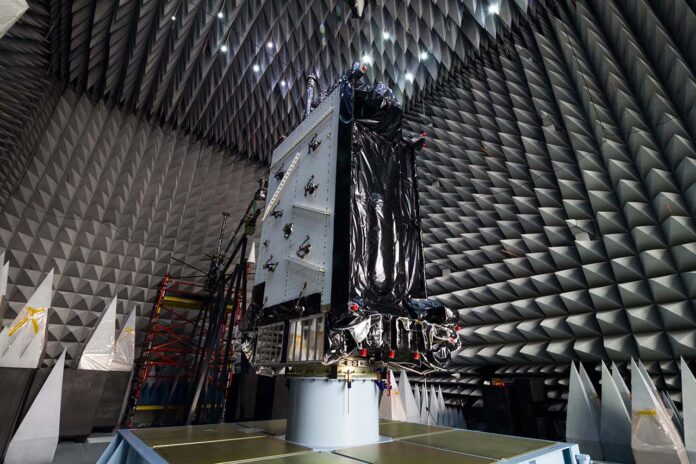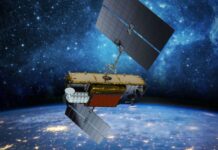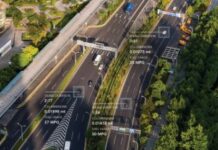(Photo: Lockheed Martin)
More industry experts are calling for backups to the Global Positioning System as the 20th anniversary of the 9/11 terror attacks recently passed. This week, in an interview with a San Francisco television station, both former U.S. Secretary of Defense Leon Panetta, industry expert Dana Goward and others said a major disaster could be on the horizon if GPS is not protected.
Goward, who is president of the Resilient Navigation & Timing Foundation, doesn’t think the U.S. government is doing enough to protect GPS’ signal and satellites. “Absolutely not. Twenty years ago, a government report issued just before 9-11 that called for a series of measures to protect GPS frequencies, toughen receivers, and provide alternate sources of timing and location information,” he said. “These have never been seriously acted upon.”
In fact, Goward believes that the situation today is worse than it was in September 2001. “Over the last two decades, the FCC has significantly reduced its enforcement staff and its ability to detect and deter disruptions,” he said. “The FCC decision in the Ligado Networks case has, according to the executive branch, authorized substantial interference with GPS signals for many users. And in 2010 when the Loran navigation and timing system was shutdown, instead of being upgraded as promised, we lost the only widely and publicly available alternative system.”
A number of published reports say that both Russia and China now have backup systems to their own positioning satellites. “These are more than published reports. They are official Chinese and Russian documents and been the subject of presentations at international conferences by Chinese and Russian officials,” Goward said. “Official Iranian news releases say they also have a terrestrial alternative to GPS, and South Korea has been very public about upgrades to their Loran system. Saudi Arabia has Loran as well, though there is little in the public domain about it.”
For its part, the U.S. government has made several attempts that foster the backup of GPS. These include promoting World Radiocommunication Conference and U.S. DOT civil alternatives, a 2008 Department of Homeland Security upgrade of Loran-C to eLoran (which was shut down in 2010 and no action taken in 2015 for another attempt) and the 2018 National Timing Resilience and Security Act. The 2018 act mandated DOT to establish a terrestrial backup for GPS timing and any other systems by December 2020.
“This [2018 mandate] was never funded, so no action. The problem is not a lack of mandates, it is a lack of action,” Goward said. “A lack of the government doing what it said it should and would do.”
Even his year, a General Accounting Office report titled “DOD Navigation Capabilities” showed “a lot of science projects with GPS alternatives, but they had a hard time competing with the GPS program for visibility, were not centrally coordinated and did not have leadership support,” Goward said.
The U.S. Space Force has said its priority is protecting GPS, but there are concerns whether they have anti-satellite capability as well as the capability to deter attacks against our constellation
“I am confident the folks at Space Force are going to do all they can, but it is impossible to deter everything. There are so many possible attack modes–cyberattacks, jamming, spoofing, and so forth,” Goward said. “Even for especially encrypted military signals, meaconing is a threat. Many possible attacks could be hard to attribute, and if folks think they can’t be identified and held accountable, it is hard to deter them.”
Goward cited other GPS threats to include severe solar activity and space debris. “Every scientist I have spoken to agrees that severe solar activity could interrupt GPS signals for at least three days. Many say longer and some say the satellites themselves would be damaged,” he said.
Overall, Goward said GPS signals are so intricately and inextricably woven into the fabric of society it is impossible to predict the exact sequence of consequences during a partial or complete outage. “ We do know that it will not be pretty,” he said. “Transportation will suffer immediately, of course, as will some systems that have no temporary hold over capability. Then as timing holdovers start to desynchronize we will begin to see failures in things like digital broadcast, telecommunications and other critical systems. We should all dearly hope the outage doesn’t extend for 24 hours.”



























